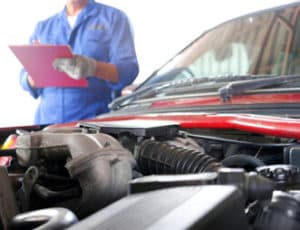Connecticut Automotive Defect Injury Attorney

Imagine: you’re driving safely in the right lane when, suddenly, your brakes give out. With no way to stop your car, you suffer a serious crash. Or perhaps you just bought your car, only to find the steering wheel is suddenly unresponsive in your hands. Or perhaps you put your car in drive, but a computer glitch sends you careening in reverse instead. These are all incidents that can occur when automobile defects exist.
Automotive defects can cause devastating loss, both physically and financially. If your car is defective, you have the right to monetary compensation. At the Kocian Law Group we are experienced in proving products liability claims. At its essence, in order to assess whether your vehicle was defective the following procedure should be followed:
- Preserve the evidence. In car cases it is important to have the vehicle properly stored so that experts may assess and review the motor vehicle at a later point in time. For example, in order to prove that brakes were defective on a car the engineer reviewing the matter would need to be able to fully inspect the parts of the vehicle which operate the brake system;
- Do not perform destructive testing unless you invite the manufacturer of the product to be present. When testing a vehicle, and inspecting same for products defects, one needs to be mindful that the target defendant is, generally, the manufacturer of the product. In car cases it is logical that the manufacturer is, usually, the company who builds and distributes the motor vehicle. A typical defense is that the product may have been altered, or tampered with, during the investigation process and not as a result of the event which is alleged to have occurred. To defray this type of collateral defensive attack it is advisable to invite the manufacturer to be present during the testing. In this manner, there can be no viable allegation that the investigators did anything that may have adversely effected the ultimate results of their analysis; and
- Obtain the necessary historical data to support the claim. There are national data banks which records product defects that are available to those with the knowledge and experience to locate this information. Recall notices, warnings, previous lawsuits and other similar indications of notice to the manufacturer that they are selling defective products can be very helpful in automotive defects cases.






